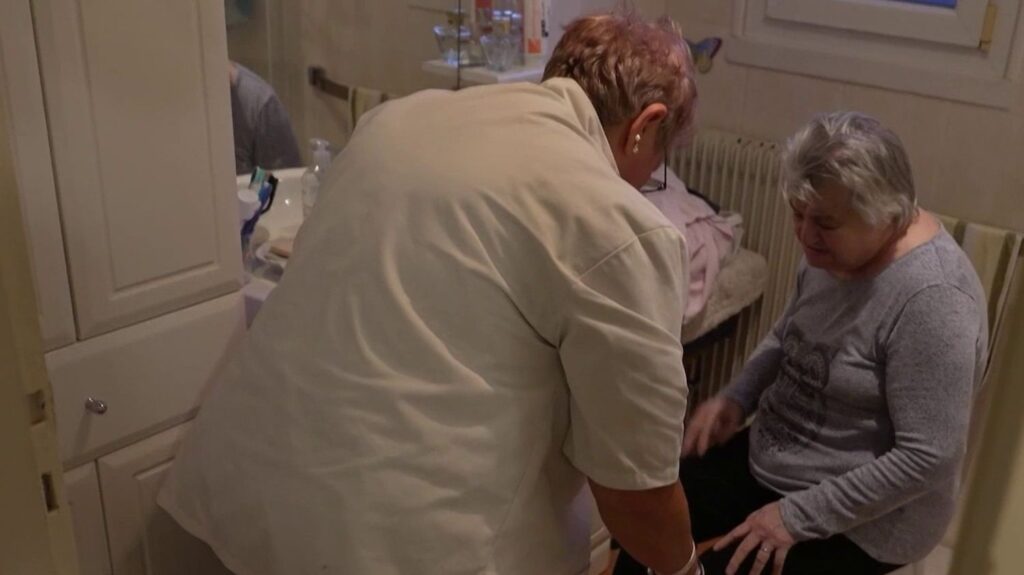Published
Reading time: 4min – video: 4min
4 minutes
At a time when the government is seeking to increase the purchasing power of the French, the “8 p.m.” program sets out to meet two women who have been receiving the minimum wage for several years. Between fatigue, frustration and fear of retirement, they tell the story of a life down to the euro, where each tank of gas is calculated with precision.
This text corresponds to part of the transcription of the report above. Click on the video to watch it in full.
From house to house, from 7 a.m., she comes to wake up those who struggle to get up alone. In Seine-Saint-Denis, Thérèse Di Mascio is a home caregiver. At almost 66 years old, she receives 1,680 euros net per month. This is 250 euros more than the minimum wage. For this full-time salary, she takes care of everything: washing, shopping and even maintaining the home.
A job close to dependent people is too poorly paid according to her: “We should be paid, I don’t know, at least 100 or 200 euros more, that would be good. So that we come out better, in fact. It deserves more because it is in relation to the work that we do, because it is still psychological work that we do in relation to people. There are people who are tough. It’s not their fault, it’s the illness that makes them like this. And then, there it is, it’s still exhausting work.“
After the boost given to caregivers during Covid, his salary has only evolved marginally, much slower than the minimum wage. Today, she feels like she is getting closer to the minimum wage: “With seniority, diploma, all that, it’s not enough. I’m angry because at the end of the day, we already work to survive and our profession is not even upgraded.“
Every year she asks for a raise, but her company explains that it cannot do more. Other employees have the impression of remaining stuck at the minimum wage level. In Val-de-Marne, Thiaba Seck, 58, has been a cashier at a hypermarket for 34 years. “In 2023, monthly net salary: 1,385 euros. In 2025, 1,396 euros. A salary that doesn’t change much. We are always on the same amounts“, she laments.
A salary close to the minimum wage, with a 13th month and in the past some company benefits. But she wanted to keep her job above all for the stability of her income: “I lived alone with my children and so, for me, I could not afford to change employers and go for months without working.“Once housing assistance has been deducted, her rent costs her 720 euros, electricity 70 euros. After insurance and transport costs, she has less than 450 euros left for her and her son. A life of economy.
Each of his expenses is well calculated. She fills up with gas as she goes to avoid ending up in the open: “When it’s months where it’s tight, I’ll use it mainly to go to work. For small everyday errands, I will go there on foot or by other means. We look for savings where we can make them.“
Living on a salary close to minimum wage and a tight budget. Even counting her husband’s income, Thérèse Di Mascio knows that the coming years will be more complicated. If she retired tomorrow, her pension would amount to just over 1,000 euros per month, according to her simulations. “I’m starting to try to live imagining that I have 1,000 euros a month, trying not to overspend like I did before. I’m trying to slowly get used to it so it doesn’t come as a shock.“, she admits.
Once retired, she already imagines continuing to work a few hours a week to supplement her pension.

/2025/10/14/smic-68eeb4364e52a699100259.jpg)

